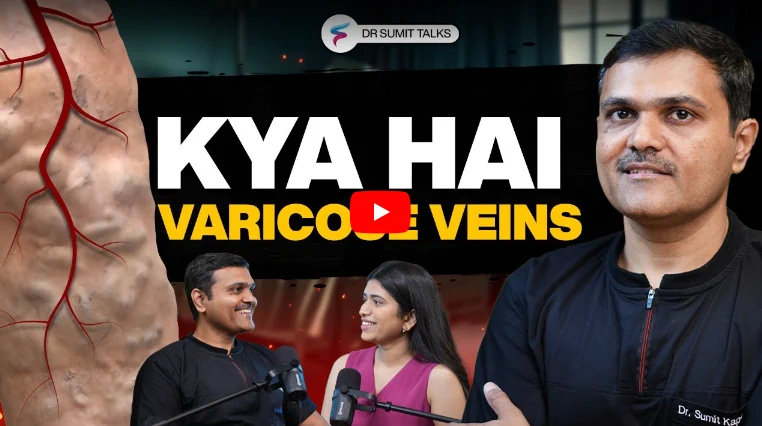
Understanding Weather Affect on Varicose Veins
When the temperature swings between the sweltering heat of summer and the biting cold of winter, your body responds in various ways.
For those dealing with varicose veins, weather changes can impact symptoms and comfort levels.
Understanding how different weather conditions affect your veins and how to manage these effects is essential for maintaining vascular health. Let’s explore how summer heat and winter cold can influence varicose veins and discover practical tips for keeping your veins healthy throughout the year.
How Does Summer Heat Affect Varicose Veins?
Summer heat can be a double-edged sword for those with varicose veins. High temperatures can exacerbate symptoms, leading to increased discomfort and swelling. Here’s how:
Expanded Veins: Heat causes your veins to dilate, which can make existing varicose veins more prominent and uncomfortable. When veins expand, blood flow slows down, increasing pressure and swelling in the affected areas.
Increased Fluid Retention: Hot weather can lead to greater fluid retention, which contributes to swelling in the legs and feet. This can make varicose veins more noticeable and uncomfortable.
Reduced Physical Activity: The heat may discourage exercise, which is crucial for maintaining healthy circulation. Less physical activity can exacerbate the symptoms of varicose veins by decreasing blood flow and increasing pressure in the veins.
How to Manage Varicose Veins During the Summer
Managing varicose veins during the hot summer months requires a proactive approach. Here are some tips to keep symptoms in check:
Stay Cool: Avoid excessive heat exposure by staying in air-conditioned environments whenever possible. Wearing lightweight, breathable clothing can also help keep your body temperature regulated.
Elevate Your Legs: When resting, elevate your legs to help reduce swelling and improve circulation. This simple action can relieve pressure on your veins and reduce discomfort.
Stay Hydrated: Drink plenty of water to help your body maintain a proper fluid balance. Hydration helps reduce fluid retention, which can alleviate some of the swelling associated with varicose veins.
Wear Compression Stockings: Compression stockings can help manage varicose veins by providing support and reducing swelling. They are especially useful during hot weather as they help improve blood circulation and ease discomfort. It is also useful to apply talcum powders before wearing stockings if you develop itching or skin rash.
Exercise Regularly: Engage in low-impact exercises like swimming, walking, or cycling. These activities promote good circulation without overburdening your veins, which is beneficial during the hot summer months.
Also Read: Best Workouts for blood Circulation
How Does Cold Weather Affect Varicose Veins?
Cold weather brings its own set of challenges for individuals with varicose veins. Here’s how winter can affect your veins:
Constricted Veins: In cold temperatures, veins constrict to conserve body heat, which can exacerbate symptoms. This constriction can increase blood pressure in the veins, making varicose veins more noticeable.
Dry Skin: Cold weather often leads to dry, itchy skin, which can worsen the discomfort associated with varicose veins. Dry skin can also crack, leading to potential complications in more severe cases.
Reduced Physical Activity: Just as in summer, cold weather might discourage physical activity. Staying indoors and leading a more sedentary lifestyle can contribute to poorer circulation and worsen varicose vein symptoms.
Tips to Maintain Healthy Veins in Cold Weather
To manage varicose veins effectively during the colder months, consider these tips:
Layer Up: Wear warm, comfortable clothing to keep your body and legs insulated. This can help prevent vein constriction due to cold temperatures.
Moisturize: Keep your skin hydrated with regular application of moisturizer. This can help prevent dryness and reduce the itching and discomfort associated with varicose veins.
Stay Active: Despite the cold, it’s important to keep moving. Engage in indoor exercises like yoga, stretching, or home workouts to maintain good circulation and prevent vein problems.
Warm Baths: Soaking in a warm bath can help relax your muscles and improve blood circulation. Avoid hot baths, as they can exacerbate swelling and discomfort in some cases.
Wear Compression Stockings: Compression stockings can also be beneficial in winter. They provide support, help maintain good circulation, and reduce symptoms of swelling and discomfort.
Tips to Improve Blood Circulation
Improving blood circulation is crucial for managing varicose veins and overall vascular health. Here are effective strategies to enhance circulation:
Regular Exercise: Engage in activities that stimulate circulation, such as walking, cycling, or swimming. Exercise helps strengthen the muscles that support vein function.
Healthy Diet: Eat a balanced diet rich in fruits, vegetables, and whole grains. Foods high in fiber and antioxidants can support vascular health and improve blood flow.
Also Read: 10 Offbeat Foods That Can Boost Your Vascular Health
Stay Hydrated: Drinking adequate water is essential for maintaining good circulation. Proper hydration helps keep blood flowing smoothly and reduces the risk of swelling.
Avoid Prolonged Sitting or Standing: If your job requires long periods of sitting or standing, take breaks to move around. Stretching and changing positions can help prevent blood from pooling in your veins.
Leg Elevation: Elevate your legs periodically to encourage blood flow back to the heart. This practice can reduce swelling and discomfort associated with varicose veins.
When to Consult a Varicose Vein Surgeon?
Consulting a varicose vein surgeon is essential if you experience any of the following:
Severe Pain: If you have persistent or severe pain in your legs that doesn’t improve with home remedies, a specialist can help determine the underlying cause and appropriate treatment.
Significant Swelling: When swelling in your legs becomes frequent or severe, it’s important to get a professional evaluation. Excessive swelling can indicate complications that require medical intervention.
Skin Changes: If you notice significant changes in the skin around your varicose veins, such as ulcers, sores, or color changes, it’s crucial to seek medical advice.
Difficulty with Mobility: If varicose veins are affecting your ability to move or walk comfortably, a varicose vein specialist can provide guidance on managing the condition and improving mobility.
Cosmetic Concerns: If the appearance of your varicose veins is affecting your quality of life or self-esteem, a specialist can discuss treatment options to improve both function and aesthetics.
Conclusion
Weather can indeed influence the symptoms and management of varicose veins, whether it’s the heat of summer or the chill of winter. Understanding how different conditions affect your veins and taking proactive measures can help you maintain vascular health year-round.
For personalized advice and effective treatment, Dr. Sumit Kapadia, a leading varicose vein specialist, offers expert care and solutions tailored to your needs.
At Aadicura, Dr. Kapadia and his team are committed to helping you manage and improve your vascular health with a range of advanced treatments and comprehensive care.
Stay informed, stay active, and consult a specialist to keep your veins healthy and your life enjoyable throughout the changing seasons.
FAQs
While there is no complete cure for varicose veins, various treatments can significantly reduce symptoms and improve appearance. Procedures like sclerotherapy, laser treatment, and surgery can help manage and improve varicose veins.
Yes, compression stockings are effective in managing varicose veins. They help reduce swelling, improve blood circulation, and provide relief from symptoms such as pain and heaviness.
Compression stockings should be worn as recommended by your healthcare provider. Typically, they are worn throughout the day and removed before bedtime to maximize their benefits.
Incorporating regular exercise, maintaining a healthy diet, staying hydrated, and avoiding prolonged sitting or standing can help manage varicose veins and improve overall vascular health.
Seek medical help if you experience severe pain, significant swelling, skin changes, difficulty with mobility, or if your varicose veins are affecting your quality of life. A vein specialist can provide appropriate treatment options.

MBBS, MS, MRCS, DNB-Fellow
Dr. Sumit Kapadia
Dr. Sumit Kapadia / MR KAPADIA SUMIT a gold-medalist from Baroda Medical College, obtained his general surgical training and senior residency from SSG Hospital, Vadodara.

MBBS, MS, MRCS, DNB-Fellow
Dr. Sumit Kapadia
Dr. Sumit Kapadia / MR KAPADIA SUMIT a gold-medalist from Baroda Medical College, obtained his general surgical training and senior residency from SSG Hospital, Vadodara.




